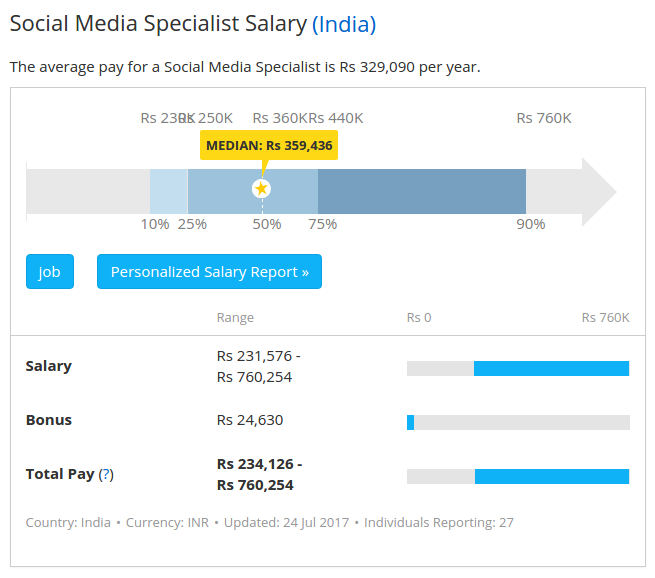
As a career, environment consultants assist with the development, analysis, implementation, and enforcement policies that minimize the environmental impact from commercial, industrial, government and other initiatives. Environmental consultants are also involved in the formulation and implementation of laws and regulations that govern the industry. They are responsible for identifying, analyzing and recommending solutions to pollution problems.
The creation, analysis, and enforcement of government policies that reduce the negative impact of commercial, industrial, and government initiatives on our environment is the responsibility of environmental consultants
An environmental consultant can do a lot of work. The analysis and creation government policies to minimize environmental impacts from industrial, commercial, and government initiatives are some of their responsibilities. They may also be asked for field research and analysis of scientific data. It is important that they have extensive experience in this field. They also need to be skilled at communication and management. Typically, environmental consultants work for smaller firms that specialize in one industry or provide a specific service. Sometimes, they may work for government agencies to monitor the environment and ensure compliance with regulations.
To provide clients with comprehensive advice, environmental consultants often combine their industry experience with regulatory expertise to offer a unique combination of scientific knowledge and industry experience. They offer information on environmental concerns, analyze management systems and policies, and monitor the environmental pollution in client organizations.
There are several branches of environmental consultancy
An example of compliance consulting is environmental consulting. It ensures that clients are complying with all applicable environmental regulations. A consultant in environmental consulting helps clients to devise and implement strategies to achieve their goals. They assist clients in identifying and implementing ways to reduce their carbon footprint.

Environmental engineering can include many different disciplines, from groundwater sampling to wastewater plant construction and operation. It may also include energy conservation and mining operation amelioration. An environmental engineer can also be employed by a government agency to assist with the development of environmental regulations. A professional in this field should be able and able to communicate effectively.
Common educational background
An educational background in environmental science is common for those looking to enter the environmental consulting field. This field of study covers a variety of core scientific disciplines, including biology, chemistry, geology, physics, and physics. Many environmental consultants also take courses in engineering to develop technical proficiency. Although there are many education options, the best is one that has a solid background in environmental science.
Many environmental consultants assist clients in permitting and provide guidance on environmental matters. They might also manage employees who are involved with environmental projects. In order to give sound advice to clients and read scientific reports and studies, environmental consultants must be able understand and interpret them.
Work-life balance requirements
It is important to have a work-life balance in a sector such as environment consulting. Many environmentalists work long hours, sometimes even overtime. To avoid burnout and other serious health problems, environmentalists need to take care of their mental well-being. Cynicism is another danger of burnout. These people are not good changemakers. For environmentalists to have a balance between work and life, they need to evaluate their values. Then decide how long they can commit to their work.
In talent management strategies, it is becoming more common to incorporate work-life balance. Both the employee and company both benefit from it, especially for multi-job juggernauts. Companies that promote work-life balance are also likely to save money and experience fewer cases of absenteeism. Flexible work schedules and telecommuting may also help to ensure a healthy work/life balance.

Profitability in the field
A profitable industry in environmental consulting provides assistance and advice to companies and organizations regarding a wide variety of environmental issues. Tetra Tech and Veolia North America are the largest US-based companies involved in this area. This industry generates around $135 million in annual revenue. Recent estimates suggest that this industry will reach its peak revenue in 2021. China and the Asia-Pacific are expected to see strong growth.
Additionally, environmental consultants can help companies avoid troubles with regulators. They can also help companies to become leaders in the field of environmental responsibility. This can result in new sales opportunities and marketing opportunities. Companies can look better to customers, which is crucial as consumers are more interested in products and services that have minimal impact on the environment.
FAQ
Can consulting be considered a real job?
Consulting is not only a good entry-level job for people looking to make quick money.
There are many opportunities for consulting, including project management, strategy, training and leadership. There are many projects you could be involved in, from small start-ups all the way up to large-scale multinational corporations.
Consulting gives you the chance to grow and develop your skills. This could include learning to manage teams and write proposals, manage finances, analyze data, create presentations and conduct market research.
What qualifications do you need to be a consultant?
Not only is it important to have an MBA but you should also have business consulting experience. You must have at least two years' experience working in consulting and/or training within a large company.
You should have had experience working with senior management to create strategy. You will need to feel comfortable communicating ideas to clients and getting their support.
Additionally, you will need to pass a professional qualification such as the Chartered Management Institute Certified Management Consultant (CMC).
How do I choose a consultant?
There are three key factors to be aware of:
-
Experience - How much experience does this consultant have? Is she a beginner, intermediate, advanced, expert, or something else? Is her resume a proof of her skills and knowledge?
-
Education – What did this person learn at school? Did he/she pursue any relevant courses once he/she graduated? Are we able to see evidence of his/her learning through the way he/she writes
-
Personality: Do you like this person or not? Would we want him/her to work for us?
-
These questions are used to determine if the candidate is right for us. If the answers are not clear, it may be worthwhile to interview the candidate in person to get more information about them.
What happens when the consultant finishes the job?
After the consultant completes his/her work, the final report will be submitted detailing the findings of their work. This report details the project timeline, deliverables, as well any other pertinent information.
The report will be reviewed and you can decide if the consultant met all your expectations. If not, you can either request changes or terminate the contract.
What types of contracts exist for consultants?
Standard employment agreements are signed by most consultants when they are hired. These agreements include details such as how long the consultant will stay with the client, what he/she can be paid, and other important information.
Contracts also specify which areas of expertise the consultant will focus on and how the consultant will be compensated. An agreement could state, for example, that the consultant will offer training sessions, workshops and webinars.
Sometimes, the consultant simply agrees that a specific task will be completed within a set time frame.
In addition to standard employment agreements, many consultants also sign independent contractor agreements. These agreements allow the consultant work on his/her own but still receive compensation for his/her efforts.
How does consulting differ to freelancing
Freelancers are self-employed individuals who offer their services to clients without employees of a company or agency. They typically charge hourly rates based on time spent working on a client's project. Consultants work for companies and agencies that employ them. Their salaries are often paid monthly, or annually.
Because they have control over their work hours and can set their prices, freelancers are more flexible than consultants. Consultants have better benefits, like health insurance, vacation time, sick leave, retirement plans and etc.
Statistics
- On average, your program increases the sales team's performance by 33%. (consultingsuccess.com)
- My 10 years of experience and 6-step program have helped over 20 clients boost their sales by an average of 33% in 6 months. (consultingsuccess.com)
- "From there, I told them my rates were going up 25%, this is the new hourly rate, and every single one of them said 'done, fine.' (nerdwallet.com)
- Over 62% of consultants were dissatisfied with their former jobs before starting their consulting business. (consultingsuccess.com)
- According to IBISWorld, revenues in the consulting industry will exceed $261 billion in 2020. (nerdwallet.com)
External Links
How To
How can I start my own consulting business?
Start your own consultancy company with a simple and efficient method - no capital investment required!
This tutorial will teach you how to make money from home while improving your skills and earning extra cash.
These secrets will help you generate traffic on demand. This is especially important when people are looking for something specific.
This method is called 'Targeted Traffic'. This method was designed specifically for you to do this...
-
You should choose the niche you wish to work in.
-
You can find out what keywords people use to search Google for solutions.
-
These keywords can be used in content.
-
Post your articles on article directories.
-
To promote your articles, use social media.
-
Build relationships with influencers and experts in that niche.
-
Be featured on these blogs and websites.
-
Grow your email list by sending out emails.
-
Start making money.